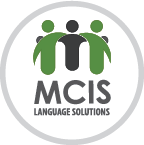A landing page is a page which has a discrete identity, separate from the main website it is attached to. It receives traffic independently and is designed for a specific marketing cause. A landing page makes the visitor focus entirely on the action/product. The user directly reaches the page without having to surf the intermediate pages. This reduces his search time and also gives a boost to the SEO rankings of the page.
How do landing pages work?
There are a number of marketing arsenals that lead you to a landing page. Emails, referral traffic, direct traffic, and blogs are some great channels that can directly lead the visitor to a landing page. You could directly share the links of your landing pages in various marketing channels. The visitor can directly land on the page, get appropriate information and leave. There is no fear of getting lost in the vast amount of data available online.
Reasons of using a landing page:
Generates leads – A landing page enables the visitor to find the exact information he is looking for. This mechanism helps in generating better leads. The sales team can further pursue the leads to convert to effective sales.
A defined area for offers – The marketing offers and discounts that are offered by any website get totally lost in the numerous pages. If these offers are specified on the landing pages, the visitors can access them easily and take full advantage of the marketing deals.
Informs you about your marketing campaign success rate – The landing page carries a single motive. So, the team can track all the leads on this page more effectively. Moreover, the sales team can analyze the leads that are actually converted and can concentrate on that segment in future.
Useful for SEO, PPO, and CRO – Landing pages can be used as marketing tools and can be shared on social media and linked to PPC (pay-per-click) advertising. These landing pages are effective SEO tools and boost the rankings with every click. Landing pages play a very important role in convincing customers to make the final buying decision. The conversion is not guaranteed, but landing pages are an important tool for CRO (conversion-rate-optimization).
Important components of a landing page:
Some of the Content Marketing for a website is blogs, videos, and images. These should be used in the landing pages to convey information more effectively.
The Title – The headline/title should be clear and concise stating the purpose of the page and informing the users about all the offers it is giving away.
Keywords – Keywords are extremely important as they form an important tool in SEO. It is an inbound marketing content which should appear at the key places on the landing page.
Social media shares – These buttons enable the user to share the landing page on social networks like Twitter, Facebook, and LinkedIn. This increases the viewership of the landing page.
Lead/ offer/ conversion form – This is a crucial part of the landing page. It is here that the visitors avail offer and convert to sales leads.
Images, videos, and blogs – Landing pages can inform the users about the products or services they are offering through images, videos or interesting blogs. These should be visually appealing and grasp the attention of visitors in just 8 seconds.
Therefore instead of directing the clicks to the homepage of the company, it should be directed to the landing page. This is the page where the user conveniently gets all the details he is looking for. The chances of these leads converting to sales are very high.
























